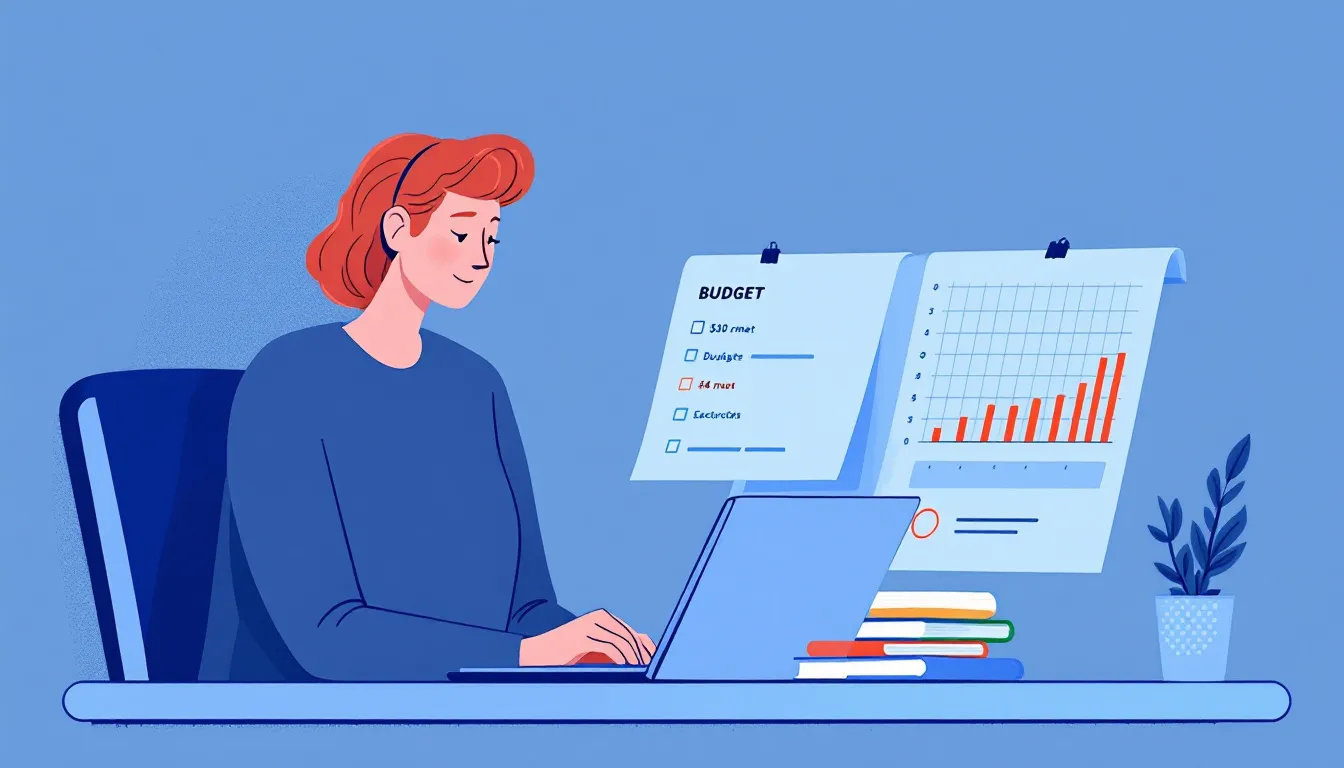The Ultimate Affordable Book Launch Checklist: 9 Essential Steps for 2026

The Ultimate Affordable Book Launch Checklist: 9 Essential Steps for 2026
Launching a book can feel financially overwhelming, especially for self-published authors navigating a market where over 1 million books are self-published annually. Without the backing of a major publishing house, many indie authors face the challenge of promoting their work on a shoestring budget. The common assumption? You need thousands of dollars for a professional launch. The reality? You can execute a highly effective book launch for under $500 with the right strategy.
This comprehensive affordable book launch checklist is designed specifically for budget-conscious indie and self-published authors who refuse to compromise on quality. According to Reedsy, while most authors spend $1,000-$3,000 on launches, successful authors have achieved remarkable results with budgets as low as $500 by focusing on high-impact, low-cost strategies.
This isn't a generic "maybe this will work" guide. Instead, we've broken down the entire launch process into nine strategic, budget-friendly steps that cover:
- Setting a realistic marketing budget that maximizes ROI
- Optimizing book metadata for free organic discoverability
- Building an author platform with minimal investment
- Creating pre-launch buzz using free channels
- Securing reviews without expensive services
- Executing launch week activities on a lean budget
- Maintaining post-launch momentum cost-effectively
Whether you're a first-time author working with limited resources or a seasoned writer looking to reduce marketing costs, this guide will show you how to launch your book affordably and effectively. Every strategy prioritizes free or low-cost tactics, with specific budget recommendations when investment is worthwhile. Let's transform your book launch from a financial burden into a strategic, affordable success story.
1. Define Your Budget and Goals
Setting a clear budget is crucial for an affordable book launch, especially for self-published and indie authors who often operate with limited resources. According to a survey by Reedsy, self-published authors typically spend between $1,000 to $3,000 on their book launches. By defining your budget upfront, you can avoid overspending and ensure that every dollar contributes to your book marketing strategy effectively.
Start by identifying realistic launch goals. Are you aiming to reach a specific sales target, build brand awareness, or achieve a set number of reviews? Understanding what you want to achieve will guide how you allocate your resources. For example, if your goal is to increase sales, you might invest more in promotional activities like email marketing or social media advertising. On the other hand, if gaining reviews is your priority, consider allocating funds towards platforms that connect authors with reviewers.
Efficient allocation of funds is the next step. Break down your budget into categories such as cover design, editing, marketing, and distribution. Tools like Trello or Asana can help you manage these expenses and keep track of your spending. For instance, if you decide to spend 20% of your budget on marketing, you might choose services like BookBub to promote your book to a broader audience. BookBub is known for its ability to reach millions of readers, making it a valuable investment for those looking to expand their reach.
Free and Low-Cost Marketing Strategies
An affordable book launch doesn't mean cutting corners—it means making strategic decisions that maximize impact while minimizing costs. Explore these budget-friendly approaches:
- Social Media Marketing: Platforms like Twitter, Instagram, TikTok, and Facebook are completely free and can reach thousands of potential readers with consistent, authentic engagement.
- Author Website: Use affordable platforms like WordPress or Wix (starting at $10-15/month) to establish your professional online presence.
- Email Marketing: Services like Mailchimp offer free plans for up to 500 subscribers, perfect for building your initial reader list.
- Cross-Promotion: Partner with other authors in your genre for newsletter swaps and social media shoutouts—completely free and highly effective for reaching warm audiences.
- Content Marketing: Start a blog, create YouTube videos, or launch a podcast to provide value and build your audience organically.
Sample Affordable Launch Budget
Here's a realistic budget breakdown for a $500 launch:
- Cover Design: $150-250 (fiverr.com or 99designs.com for budget options)
- Marketing Materials: $50-100 (ManuscriptReport's book marketing services starting at $25 for blurbs, keywords, ad copy, and descriptions—saving $2,000+ on marketing consultants)
- Launch Week Advertising: $100-150 (Amazon Ads testing budget)
- Platform & Tools: $0-50 (free social media, $0 email marketing for <500 subscribers)
By carefully defining your budget and goals upfront, you orchestrate a successful book launch that maximizes ROI without financial stress. Remember: the most expensive marketing isn't always the most effective. Strategic, targeted efforts often outperform costly shotgun approaches.

2. Optimize Your Book Metadata
Optimizing your book metadata is a crucial step in ensuring a successful and affordable book launch. This process begins with utilizing keywords effectively to enhance your book's discoverability. Keywords are the terms potential readers might use when searching for books similar to yours. By integrating these keywords into your book's title, subtitle, and description, you increase the likelihood of appearing in relevant search results. For example, self-published authors and indie authors often use genre-specific keywords or popular themes related to their books to attract the right audience.
Choosing the Right Amazon Categories
Selecting the right categories on platforms like Amazon KDP is another vital aspect of this free optimization strategy. These categories help position your book within Amazon's vast marketplace, making it easier for readers to discover. According to Written Word Media, books that classify under niche categories often enjoy higher conversion rates and better rankings.
Pro tip: Don't settle for broad categories like "Fiction." Instead, drill down to specific subcategories like "Fiction > Mystery > Cozy Mystery > Culinary." You can select up to 10 categories by contacting Amazon KDP support after publishing, even though the interface initially only shows two options. This can position your book as a bestseller in multiple niche categories, triggering Amazon's recommendation algorithm—completely free.
Crafting a Compelling Book Description
Your book description (blurb) is often the make-or-break point for potential buyers. This brief summary should be engaging, concise, and strategically incorporate your primary keywords to resonate with both readers and search engines. A well-crafted description doesn't just summarize your book—it sells the experience.
Structure your description with:
- An attention-grabbing opening line that hooks the reader immediately
- A brief setup of the protagonist and their world
- The central conflict and what's at stake
- A compelling question or cliffhanger that makes them want to know more
Professional tools like ManuscriptReport's Marketing Report can analyze your manuscript and generate SEO-optimized descriptions, targeted keywords, and ideal categories in about 10 minutes—starting from only $25, saving you hours of research while ensuring your metadata is optimized for maximum discoverability.
The beauty of metadata optimization? It costs nothing but time and strategic thinking, yet it's one of the most powerful drivers of organic book sales. By paying close attention to these elements, you significantly improve your book's visibility without spending a dollar on advertising.
Subscribe & Get Your Free Marketing Plan Template
Receive regular updates on marketing best-practices, AI shortcuts, and get our proven 4-phase marketing roadmap for free.
Unsubscribe anytime.
3. Build an Author Platform
An essential step in an affordable book launch is building a robust author platform. This platform serves as your personal marketing hub, helping you connect with readers and promote your book effectively without incurring hefty costs. Start by creating a professional author website. This website should include a well-designed homepage, an engaging bio, and a blog where you can share updates and insights related to your writing. Websites like WordPress or Squarespace offer affordable options with customizable templates that are perfect for self-published authors. A professional site not only establishes your credibility but also provides a centralized location for fans to learn more about you and your work.
Next, leverage social media to boost engagement. Platforms such as Twitter, Instagram, and Facebook are invaluable for indie authors aiming to reach a broader audience. Use these channels to share snippets of your book, behind-the-scenes content, and engage in conversations with your readers. According to Statista, as of 2023, there are over 4.9 billion social media users worldwide, making it a fertile ground for book marketing. By consistently posting and interacting with your audience, you can build a loyal following that eagerly anticipates your book launch.
Building an email list is another critical component of your author platform. Email marketing allows for direct communication with your audience, fostering a more personal connection. Services like Mailchimp or ConvertKit offer free plans that are perfect for indie authors just starting out. By offering a free chapter of your book or exclusive content in exchange for email sign-ups, you can grow your list and keep your audience informed about upcoming releases and events. This strategy ensures that when your book launch day arrives, you have a ready-made audience eager to support your new release.
The $0 Author Platform Strategy
For those on an extremely tight budget, here's how to build a platform for free:
- Free Website: Use WordPress.com's free tier or create a one-page site on Carrd.co ($0)
- Social Media: Focus on 1-2 platforms where your readers are most active (Twitter/Instagram for most fiction, LinkedIn for business books)
- Email Marketing: Mailchimp's free plan (up to 500 subscribers) or MailerLite's free tier
- Content Strategy: Repurpose one piece of content across all platforms to maximize reach without burning out
By focusing on these elements, you can create a strong author platform that supports an affordable book launch and paves the way for long-term success—all while keeping costs minimal or completely free.

4. Create Pre-Launch Buzz and Build Anticipation
A book launch shouldn't be a sudden announcement; it should be the climax of a carefully orchestrated campaign. The pre-launch phase, typically starting 3-6 months before your publication date, is dedicated to building momentum and creating desire—all without spending money on advertising.
Budget-Friendly Pre-Launch Tactics
3-6 Months Before Launch:
- Cover Reveal: Share your professional cover across all social media platforms. Create a branded graphic using free tools like Canva.
- Behind-the-Scenes Content: Show your writing process, share character insights, or discuss your research. This authentic content costs nothing and builds genuine connections.
- Start Your Email List: Offer the first chapter as a free download in exchange for email sign-ups.
2-3 Months Before Launch:
- ARC Distribution: Use free platforms like BookSprout or coordinate directly with book bloggers and BookTok/Bookstagram influencers.
- Build Your Street Team: Recruit enthusiastic readers from your existing audience to help spread the word on launch day.
- Create a Book Landing Page: Use your author website or a free Carrd.co page with pre-order links.
1 Month Before Launch:
- Daily Countdown Posts: Share character quotes, world-building details, or chapter teasers.
- Host Free Virtual Events: Instagram Lives, Facebook Lives, or TikTok videos to connect with potential readers.
- Engage in Reader Communities: Participate authentically in Goodreads groups, Reddit communities, and Facebook groups in your genre.
According to BookBaby research, authors who start marketing at least three months prior to launch see a 60% increase in sales compared to those who start later. The key is consistency, not big spending.
5. Plan Your Launch Timeline
Planning your launch timeline is a critical step for an affordable book launch. A structured timeline not only helps keep costs in check but also ensures that all necessary tasks are completed in a timely manner. For self-published and indie authors, this organization can be the difference between a successful launch and a costly misstep.
Start by scheduling your pre-launch activities. This phase typically includes building your audience, setting up your website, and creating buzz around your book. According to a survey by BookBaby, authors who start marketing their books at least three months prior to launch see a 60% increase in sales compared to those who start later. Utilize this time to engage with potential readers through social media, newsletters, and blog posts.
Next, plan your actual launch day. This is when all your hard work culminates. Ensure you have all your promotional materials ready, such as press releases, social media posts, and email campaigns. Consider hosting a virtual event or a live Q&A session to directly interact with your audience and drive sales.
Post-launch, continue to promote your book through consistent marketing efforts. This could include soliciting reviews, engaging with readers, and exploring additional marketing channels like podcasts or guest blogging. Remember, the promotion doesn't stop on launch day.
To manage this timeline effectively, consider utilizing timeline management tools like Trello or Asana. These platforms allow you to create detailed schedules, set reminders, and even collaborate with team members if you're working with a small group. They can be invaluable in keeping your book marketing efforts organized and on track without the need for expensive project management solutions.
By carefully planning each phase of your book launch and leveraging free project management tools, you can execute an effective and affordable book launch strategy that maximizes your reach and minimizes your costs.
6. Leverage Reviews and Social Proof
Leveraging reviews and endorsements is a crucial strategy for an affordable book launch. For self-published authors and indie authors, gathering early reviews can significantly boost credibility and visibility. According to BookBub, books with over 150 reviews on Amazon can see a 20% increase in sales. To achieve this, consider forming an ARC (Advance Review Copy) team. This group of readers receives your book before its official launch in exchange for honest reviews. Engage with your existing audience through newsletters and social media platforms to recruit passionate readers who are eager to support your work.
Connecting with influencers can also be a game changer. Influencers in your genre can offer endorsements that not only enhance your book's credibility but also tap into their established audience. Start by identifying influencers who align with your book's themes and message. A personalized email pitch, highlighting why your book would resonate with their audience, can open the door to potential collaborations. Remember, endorsements from respected figures can be as persuasive as reviews themselves.
Once you have collected reviews and endorsements, use them strategically in your marketing materials. Positive reviews can be highlighted on your book's cover, website, and promotional materials. For instance, including a compelling review snippet in your email campaigns or social media posts can entice potential readers. Furthermore, platforms like Goodreads can be instrumental in showcasing reviews, as readers often trust peer feedback. By integrating reviews and endorsements into your marketing strategy, you are effectively building social proof, a powerful tool in book marketing.
Free Review-Gathering Strategies
On an extremely tight budget, focus on these no-cost approaches:
- Your Existing Network: Reach out to beta readers, writing group members, and personal contacts who've read your work.
- BookSprout: Free ARC distribution platform (paid tiers available but not required).
- Direct Outreach: Research book bloggers and BookTok/Bookstagram accounts in your genre and send personalized pitches.
- Reader Groups: Join genre-specific Facebook groups and Reddit communities where readers actively discuss books (be authentic, not spammy).
- Goodreads: List your book and engage with readers in relevant groups.
Remember: 95% of consumers read reviews before making a purchase. Aim for 15-25 reviews by launch day, with a goal of 50+ within 90 days. This social proof dramatically impacts conversion rates without costing a dollar.
7. Execute Strategic Launch Week Activities
The week your book launches is the single most critical period for generating sales momentum and algorithmic visibility. A strategic launch week isn't about expensive advertising—it's a coordinated campaign using primarily free tactics to create maximum impact.
Your Free Launch Week Game Plan
Day 1 - Launch Day:
- Announce across all social media platforms simultaneously
- Send email blast to your list with direct purchase links
- Post in relevant reader communities (with permission)
- Go live on Instagram/Facebook to celebrate and answer questions
Days 2-3 - Amplification:
- Share reader reactions and early reviews
- Host Q&A sessions or behind-the-scenes content
- Activate your street team to share and review
- Engage with every comment and mention
Days 4-5 - Urgency Creation:
- If running a launch discount, remind followers it's ending soon
- Share milestone celebrations ("We hit 50 sales!")
- Continue daily engagement and content
Days 6-7 - Momentum Maintenance:
- Thank everyone who supported
- Share what's next (sequel, new project)
- Keep engaging with new reviews and mentions
Budget-Friendly Launch Week Advertising (Optional):
If you've allocated $100-150 for advertising, launch week is when to deploy it. Start with a modest daily budget of $5-10/day on Amazon Ads, targeting specific keywords in your genre. Track click-through rates and cost per click. Even a small, well-targeted ad spend can boost initial visibility and trigger Amazon's recommendation algorithm, creating organic momentum that continues after your paid campaign ends.
The goal: create a wave of coordinated activity that signals to retailer algorithms that your book is gaining traction, triggering recommendations that lead to organic sales long after launch week ends.
8. Utilize Cost-Effective Ongoing Promotion
When it comes to an affordable book launch, cost-effective advertising is a crucial component for self-published and indie authors. One of the most popular platforms to consider is Amazon Ads. With over 197 million people visiting Amazon each month, this platform offers a massive audience of potential readers. Amazon Ads allows authors to target specific keywords and genres related to their book, making it easier to reach the right audience without overspending.
Starting with a small budget is advisable. Allocating a modest sum for ad testing can yield valuable insights into what strategies are most effective for your book marketing. Begin by running multiple ad campaigns with varied keywords and targeting criteria. This experimentation phase is essential to determine which ads generate the most engagement and conversions. Set aside a portion of your budget specifically for testing, as this will help refine your approach and optimize your ad spend over time.
Improving ad performance is an ongoing process. Regularly analyze the data from your ad campaigns to identify trends and patterns. Look for metrics such as click-through rates, cost per click, and conversion rates. By understanding these metrics, you can tweak your campaigns to maximize efficiency. Consider using tools like ManuscriptReport.com, which provides ad copy templates tailored to your book's genre and target audience. This feature can significantly enhance your advertising strategy by offering professionally crafted ad copy that captures attention and effectively communicates your book's value.
Long-Term, Low-Cost Promotion Strategies
The initial launch is a sprint, but long-term book sales are a marathon. Many authors make the critical mistake of halting promotional efforts after launch week. To achieve sustained success on a budget, implement these ongoing tactics:
Free Ongoing Promotion:
- Continue Social Media Engagement: Post 3-5 times per week with a mix of book content, writing tips, and personal updates.
- Email Newsletter: Send monthly updates to your list (free up to 500 subscribers on Mailchimp).
- Cross-Promotion with Other Authors: Newsletter swaps, social media shoutouts, joint giveaways—all free.
- Participate in Virtual Events: Free author panels, podcast interviews, Reddit AMAs.
- Seasonal Tie-Ins: Promote your romance around Valentine's Day, your thriller around Halloween—free but strategic timing.
Strategic Low-Budget Advertising: As you gather more sales data, you can gradually increase your ad budget for campaigns showing positive ROI. Start with $5/day, test for 2 weeks, analyze results, and scale what works. This iterative process ensures your advertising remains cost-effective while steadily improving visibility.
Consider using tools like ManuscriptReport's book marketing services to generate professional ad copy tailored to your genre, saving hours of testing and refinement. For testimonials and examples, check out proven book marketing strategies that successful indie authors use.

9. Build and Engage with Your Community
Engaging with your community is a cornerstone of an affordable book launch strategy, especially for self-published and indie authors. Connecting with readers not only boosts your book's visibility but also fosters a loyal fan base. One effective way to engage with your community is by hosting virtual events or book signings. These online gatherings allow you to reach a global audience without the costs associated with physical venues. Platforms like Zoom or Instagram Live enable you to interact with readers in real-time, answer questions, and give insights into your writing process. According to a 2022 survey by Eventbrite, 43% of event organizers found virtual events to be more cost-effective than in-person ones.
Participating in online forums and groups is another vital tactic. Websites like Goodreads and Reddit have active communities where readers discuss their favorite books and authors. By joining these conversations, you can introduce your book to potential readers who share similar interests. Sharing valuable content and engaging genuinely in discussions can position you as an approachable and relatable author. Remember to adhere to the guidelines of each platform to avoid coming off as spammy.
Building long-term relationships with your readers is crucial for sustained success. This can be achieved by maintaining an active social media presence where you regularly update your audience on your writing journey, share behind-the-scenes content, and celebrate milestones with them. Creating an email newsletter is another effective strategy. It allows you to communicate directly with your readers, offering them exclusive content and updates. According to a 2023 report by HubSpot, email marketing has an average ROI of 4200%, making it a powerful tool for ongoing engagement.
By thoughtfully engaging with your community using these free tactics, you lay the foundation for a successful and affordable book launch. These interactions not only enhance your book marketing efforts but also help cultivate a dedicated readership that supports your future projects—all without significant financial investment.
Frequently Asked Questions About Affordable Book Launches
Can I really launch my book successfully for under $500?
Absolutely! While Reedsy reports that most self-published authors spend $1,000-$3,000 on book launches, successful launches can be executed for $500 or less by focusing on high-impact, low-cost strategies.
Allocate your budget strategically: $150-250 for cover design (use Fiverr or 99designs), $50-100 for marketing materials, and $100-150 for launch week Amazon Ads testing. The remaining $0-50 covers free tools for website, email marketing, and social media. Many successful authors have launched with even smaller budgets by maximizing free strategies.
What free marketing strategies are most effective for book launches?
The most effective free book marketing strategies include optimizing your book metadata (keywords, categories, and descriptions) for organic Amazon discoverability, building an email list using free tools like Mailchimp, leveraging social media platforms, cross-promoting with other authors, and participating in reader communities.
According to research, authors who start marketing 3 months before launch see 60% higher sales, and these free strategies form the foundation of that success. The key is consistency and strategic effort, not big spending.
How many book reviews do I need before launching?
Aim for 15-25 reviews by launch day, with a goal of reaching 50+ reviews within the first 90 days. Research from BookBub shows that books with over 150 reviews on Amazon can see a 20% increase in sales.
To gather reviews affordably, form a free ARC team from your existing audience, use free platforms like BookSprout, reach out to genre-specific book bloggers and influencers, and engage in reader communities. These strategies cost nothing but time and systematic outreach.
Which is more important: spending on cover design or marketing?
Cover design should be your top priority for paid expenses. A professional cover is your book's primary marketing asset—it's what stops browsers from scrolling past. Budget $150-250 for cover design using affordable services.
For marketing, prioritize free strategies first before spending on ads. A great cover with free marketing outperforms a mediocre cover with paid ads every time.
How much should I spend on Amazon Ads for my book launch?
For an affordable book launch, start with just $5-10 per day during launch week, totaling $35-70 for a week-long campaign. This modest investment can trigger Amazon's recommendation algorithm and create momentum.
Test multiple ad campaigns, track metrics, and scale what works. However, never advertise before you have at least 10-15 reviews, as ads to books without social proof waste money.
What tools can help me launch my book affordably?
Essential affordable tools include Mailchimp (free email marketing up to 500 subscribers), Canva (free graphic design), WordPress.com or Carrd.co (free websites), Trello or Asana (free project management), BookSprout (free ARC distribution), and ManuscriptReport.com (starting at $25 for comprehensive marketing materials).
These tools help you save 15+ hours weekly while maintaining professional quality without expensive subscriptions.
Your Path to an Affordable, Professional Book Launch
Launching a book doesn't have to drain your bank account or require thousands of dollars. This affordable book launch checklist proves that with strategic planning, free tools, and focused effort, you can execute a professional launch for under $500—or even less if you're willing to maximize free strategies.
Key Takeaways for Budget-Conscious Authors
The most successful affordable book launches share these characteristics:
- Strategic Budget Allocation: Every dollar is spent intentionally on high-impact items like professional cover design and targeted launch week advertising, while maximizing free strategies for everything else.
- Front-Loaded Effort: The majority of work happens 3-6 months before launch through free activities like building your platform, optimizing metadata, and securing reviews.
- Consistency Over Scale: Regular, authentic engagement on 1-2 social media platforms outperforms sporadic activity across many channels.
- Community Building: Long-term success comes from cultivating genuine reader relationships through email lists, social media, and authentic participation in reader communities.
Your Next Steps
Ready to launch your book affordably? Here's your action plan:
- Start Today: Set your launch budget and timeline (3-6 months out)
- Prioritize Free Strategies First: Optimize metadata, build your email list, engage on social media
- Invest Strategically: Cover design first, marketing materials second, ads last
- Automate Time-Consuming Tasks: Use tools like ManuscriptReport's book marketing services to generate professional blurbs, keywords, and ad copy starting from only $25, saving you the $2,000+ typically spent on marketing consultants and avoiding weeks of trial and error
- Execute and Adapt: Monitor what works, double down on successful tactics, cut what doesn't perform
Remember: the most expensive book launch isn't always the most successful. Strategic, budget-conscious authors who focus on high-impact free strategies often outperform those who throw money at expensive advertising without a solid foundation.
Your story deserves to be discovered. With this affordable book launch checklist, you have the roadmap to make that happen without financial stress. Start today, stay consistent, and watch your book find its audience.
Launch your book professionally without breaking the bank. Visit ManuscriptReport.com to generate comprehensive marketing materials in minutes, starting from only $25—and get back to what you do best: writing your next book.
Enjoyed this article? Subscribe for more + get a free marketing roadmap template.
Receive regular updates on marketing best-practices, AI shortcuts, and get our proven 4-phase marketing roadmap template for free.
Unsubscribe anytime.
Related Articles

7 Budget-Friendly Book Marketing Strategies: Complete Guide for Indie Authors
Master budget book marketing with 7 proven strategies that work on $0-$500 budgets. Real ROI data, free tools, and actionable tactics for indie authors.

How to Write Viral Book Hooks: 10 Proven Strategies for Social Media Success
Master the art of viral book hooks with 10 proven strategies, platform-specific tactics, and templates that grab attention on BookTok, Instagram, and beyond.

7 Must-Have AI Writing Tools for Authors
Discover essential AI writing tools for authors to boost creativity and streamline marketing. Learn actionable tips and explore solutions like ManuscriptReport.com.